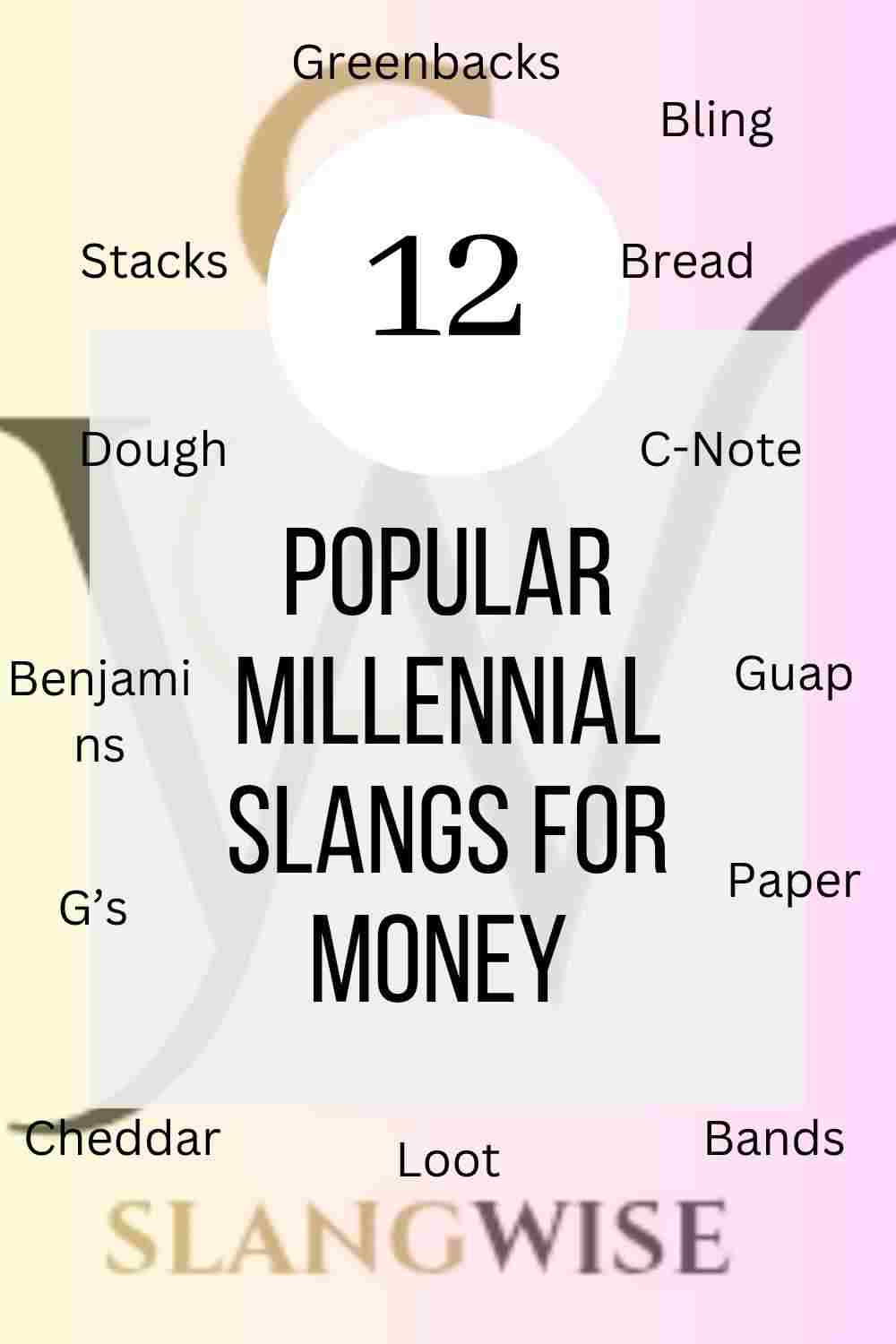I’ve spent some times tracking how generations reshape language, and few examples are as telling as the money-related slang that defined millennials.
From “ballin’” to “dough,” these millennial money slangs capture more than wallets, they reflect attitudes toward wealth, hustle, and aspiration.
In this post, I’ll break down 12 popular millennial slangs for money, explaining their origins, nuances, and why they still resonate today.
Table of Contents
In a Nutshell
- Millennials coined catchy money slang like “lit” and “hundo,” blending cultural influences with financial attitudes.
- Each term carries its own flavor, some emphasize success (“ballin”), others underscore everyday hustle (“bread”).
- By decoding these slangs, you gain insight into how language reflects broader social and economic shifts.
SlangWise Tip
Incorporate these slangs selectively in casual settings to convey cultural fluency without overusing informal jargon.
12 Millennial Slang Words for money
1. Stacks
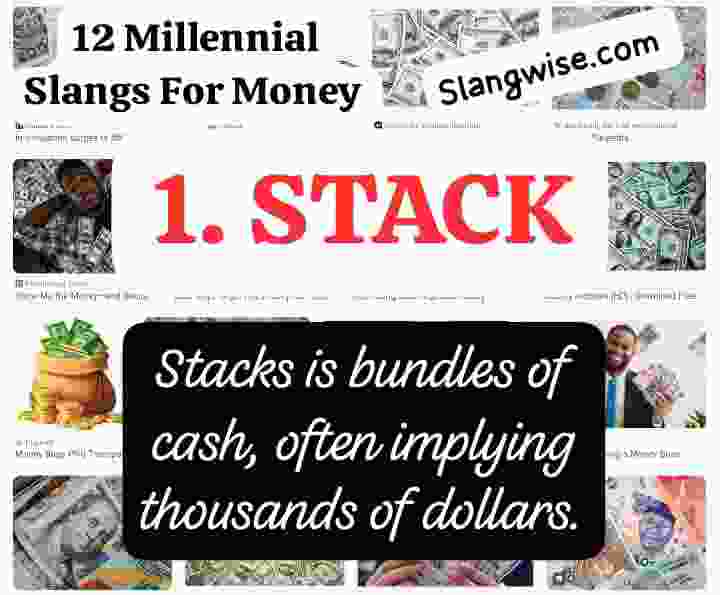
Stacks denote large sums of cash, usually bundled in hundreds or thousands of dollars. It emerged in early 2000s hip-hop, where artists described “stacks” as thick bundles of bills.
In short: Stacks is bundles of cash, often implying thousands of dollars.
Example:
- “She paid off her student loans and still walked away with stacks.”
2. Bread
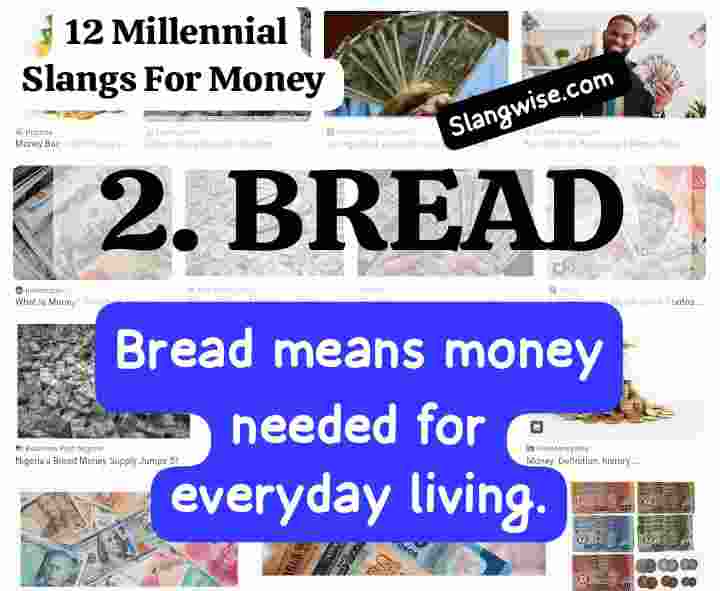
Bread is a longstanding metaphor equating money with a necessary staple. This millennial term dates to mid-20th-century American slang and resurfaced via memes and internet culture.
In short: Bread means money needed for everyday living.
Example:
- “Most of my bread goes toward rent and utilities each month.”
- (See a broader list of fundamental slang in 35 Most Popular American Slang Words of 2025.)
3. Dough
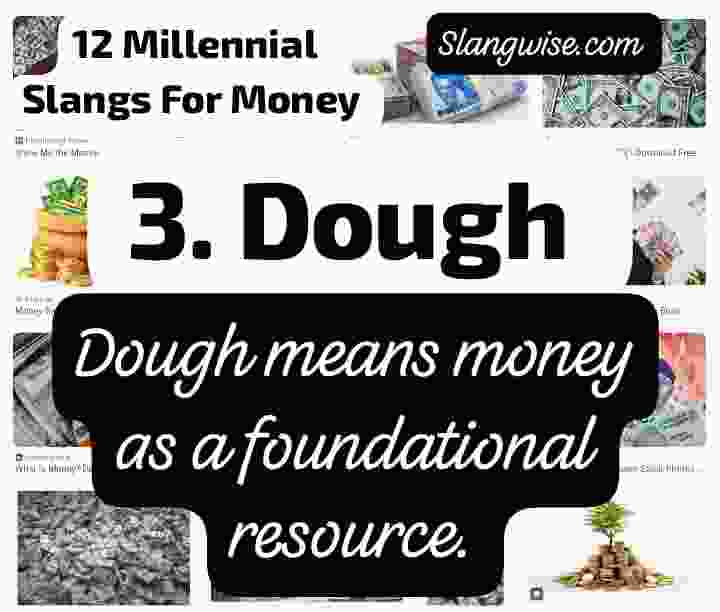
Dough likens money to the raw ingredient that can generate more wealth. It’s being in use since the 1930s; regained popularity among millennials through rap lyrics and viral posts.
In short: Dough means money as a foundational resource.
Example:
- “Invest that dough wisely if doubling your net worth is the goal.”
4. Benjamins
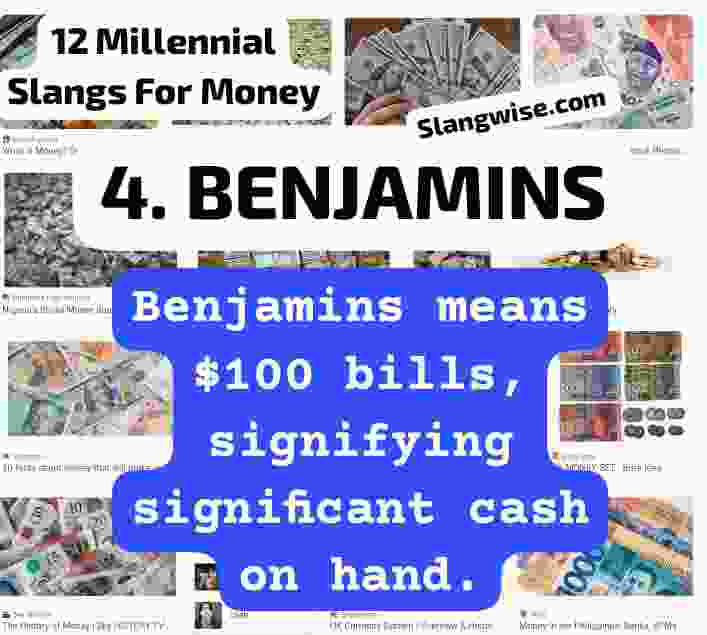
Benjamins specifically refers to $100 bills, which feature Benjamin Franklin. It was popularized in the late 1990s by songs like Puff Daddy’s “It’s All About the Benjamins.”
In short: Benjamins means $100 bills, signifying significant cash on hand.
Example:
- “Paying for a new laptop in Benjamins made the purchase feel more real.”
5. C-Note
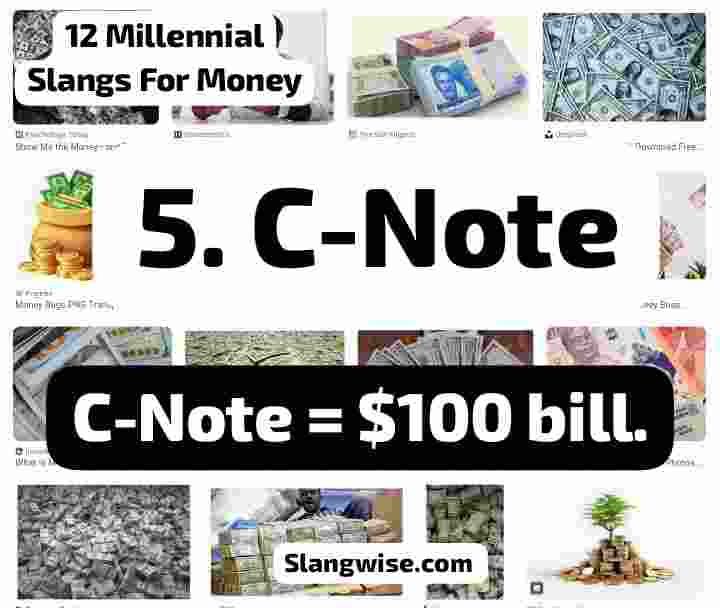
A C-Note denotes a single $100 bill, with “C” representing 100 in Roman numerals. In circulation since the early 20th century; millennials kept it alive on social media and finance blogs.
In short: C-Note = $100 bill.
Example:
- “Finding a C-Note in old jeans is a small windfall.”
6. Guap
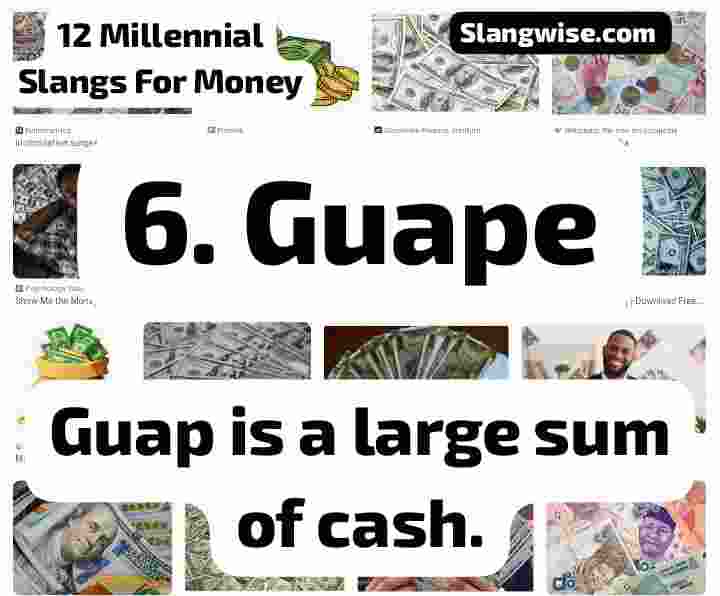
Guap signifies a substantial amount of money, often thousands of dollars. Guap dated back to the Mid-2000s hip-hop and urban lexicon, modeled on the sound of counting cash; surged via social platforms.
In short: Guap is a large sum of cash.
Example:
- “After that freelance project, he scrolled through a hefty guap in his bank app.”
- (For related Gen Z money terms, see 23 Gen Z Slang Terms for Money You Need to Know.)
7. Paper
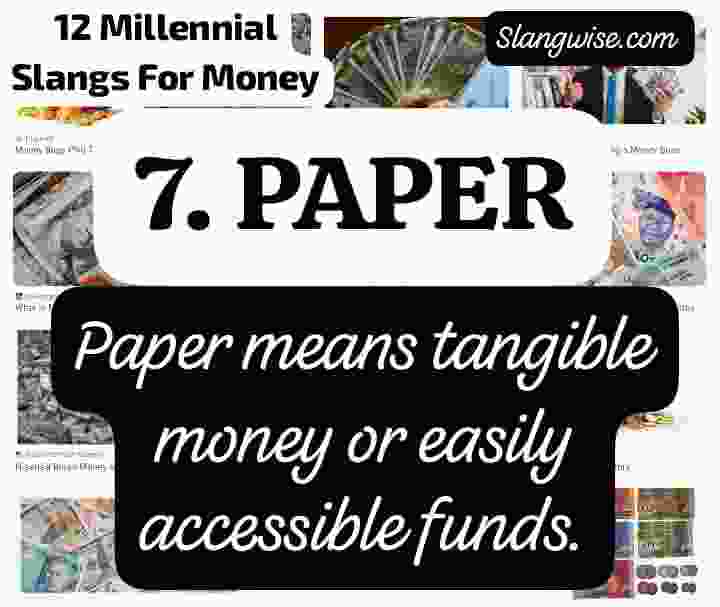
Paper refers to real, spendable money, emphasizing physical cash or liquid assets. It started from late 1990s hip-hop and Black American vernacular used “paper” to distinguish actual earnings from promises.
In short: Paper means tangible money or easily accessible funds.
Example:
- “She flipped that side hustle into paper before the rent was due.”
- (Learn to integrate slang into digital communication in How to Master Internet Slang Like a Pro.)
8. G’s
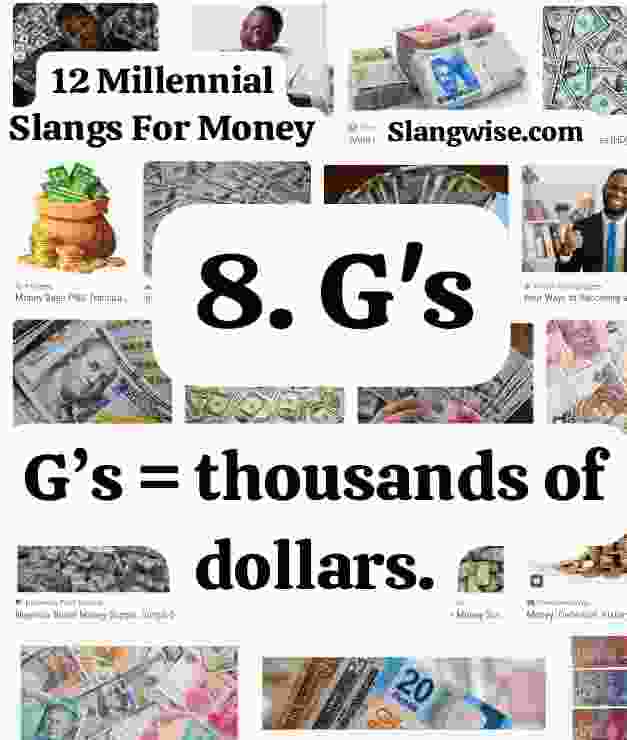
G’s (short for “grand”) indicates amounts in thousands of dollars.
Dated from the early 20th-century street slang; gained renewed momentum among millennials through Reddit and Twitter finance threads.
In short: G’s = thousands of dollars.
Example:
- “Raising fifteen G’s for a startup requires solid pitch skills.”
9. Loot
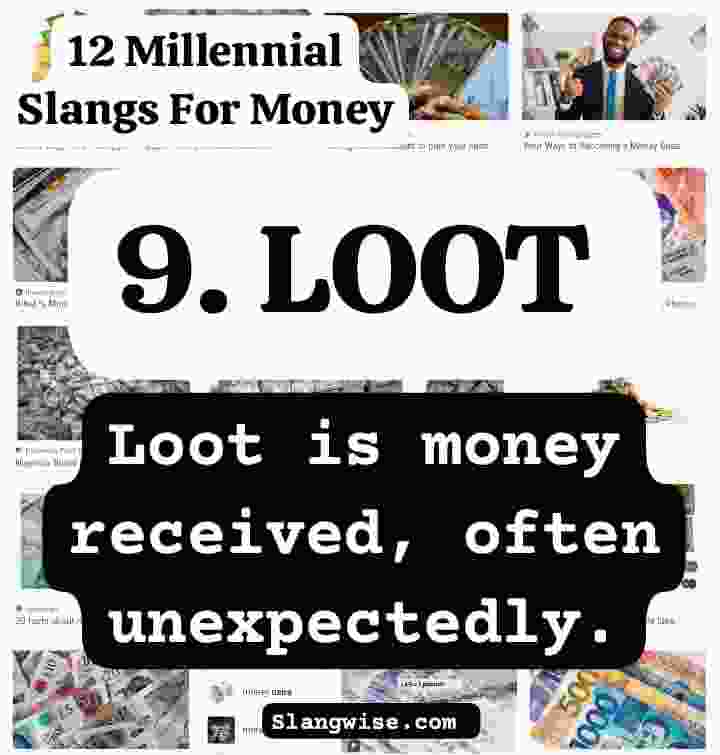
Loot describes money gained, especially as a windfall, evoking imagery of treasure. Originally meant stolen goods in the 19th century; millennials reappropriated it via gaming and meme culture.
In short: Loot is money received, often unexpectedly.
Example:
- “Winning that scholarship felt like serious loot during senior year.”
10. Cheddar
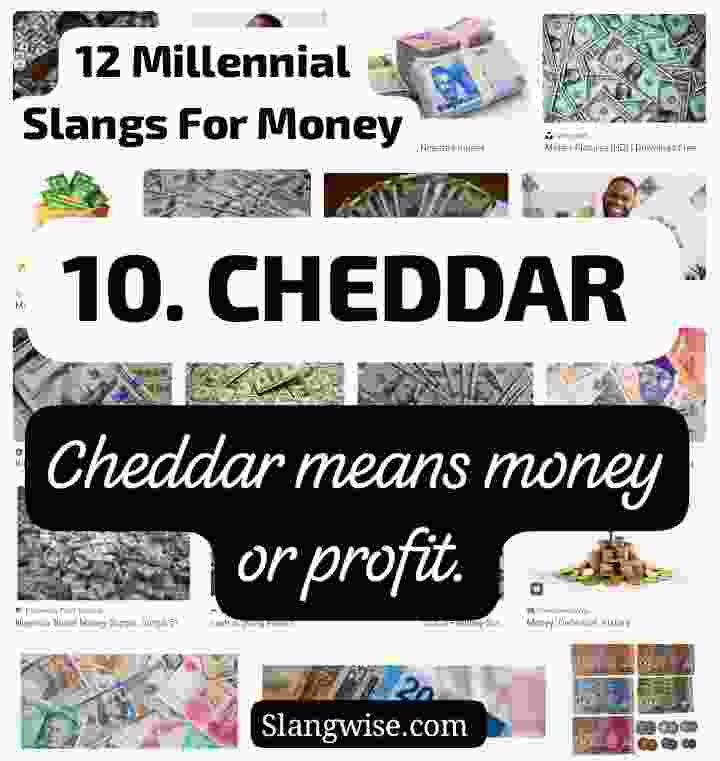
Cheddar is a millennial slang term for money, drawing on the idea of cheese as a valuable commodity. It was Popularized in 1990s rap; resurfaced among millennials through viral hashtags and music references.
In short: Cheddar means money or profit.
Example:
- “Turn your side gig into cheddar before next month’s bills.”
11. Bands
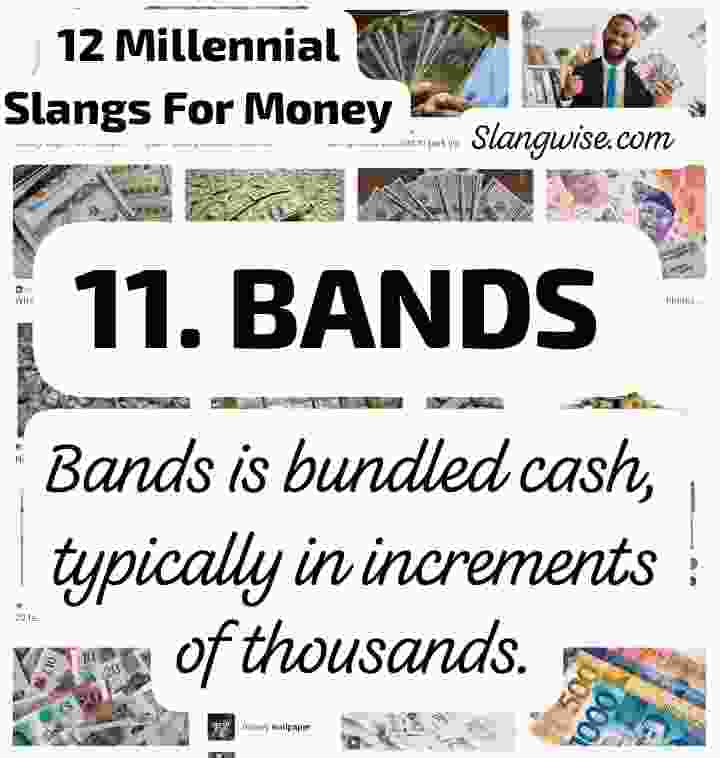
Bands refer to stacks of cash bound together by rubber bands, often representing thousands. It is similar to “stacks,” this term emerged in hip-hop when rappers described money in bundles secured by bands.
In short: Bands is bundled cash, typically in increments of thousands.
Example:
- “Investors saw those quarterly profits and stacked up multiple bands.”
12. Greenbacks
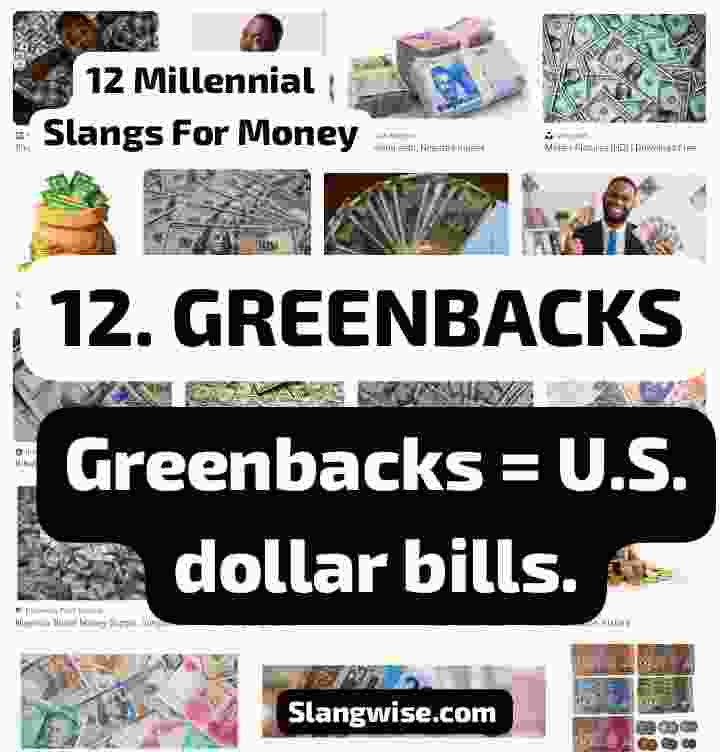
Greenbacks is a historic term for U.S. paper currency, especially dollar bills. Originated during the Civil War era; revived among millennials as a nostalgic or humorous reference.
In short: Greenbacks = U.S. dollar bills.
Example:
- “Street performers still prefer tips in greenbacks rather than digital payments.”
🇯🇲 Who’s Your Bredda? Discover 7 Jamaican Slangs That Redefine Friendship!
From Brogad to Linky, these aren’t just words, they’re pure island vibes.
Click now to learn the coolest ways Jamaicans say “friend” or “bro”!
Conclusion
There you have it, 12 popular millennial slangs for money that’ll help you sound like a pro! From “bread” to “benjamins,” these terms are sure to add some flavor to your conversations about cash.
If you’re discussing finances or just throwing around slang for fun, these words are sure to bring a smile. Stay financially fluent, and keep it fresh!
About the Author
Agboola John is the founder of SlangWise.com and a leading researcher of generational slang trends. With extensive linguistic analysis and cultural expertise, John decodes evolving vernacular to help readers stay informed and fluent in modern slang.

